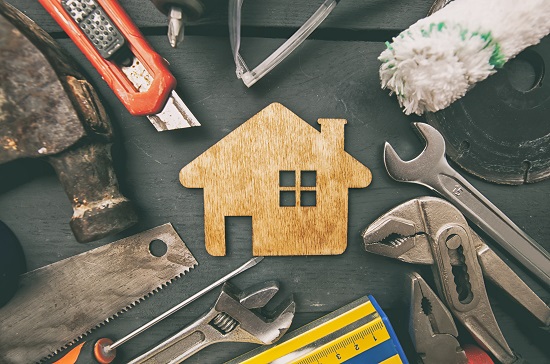The value of a property isn’t just a number; it’s a reflection of a complex interplay between external and internal factors. In this comprehensive guide, we will explore these factors in detail, shedding light on what makes a property worth what it is.
Whether you’re looking to buy, sell, invest, or simply gain insight into the real estate world, this guide will equip you with the knowledge you need to make informed decisions.
External Factors
External factors exert a powerful influence on property valuation and understanding these external factors is crucial for gauging property worth. Here are some of the external factors to consider:
Economic Conditions
Economic conditions, the financial health of an area, greatly influence property appraisal. For instance, a city with a booming tech industry may see high demand for housing, driving up property prices. Conversely, economic downturns, like a recession, can lead to decreased property values due to job losses and reduced affordability.
Think of how the Silicon Valley’s tech boom transformed properties into high-value assets, while the 2008 recession caused property values to plummet in many areas. This is why it’s important to be aware of the right timing to sell your house.
Market Trends
In a seller’s market where demand surpasses supply, competition can inflate property values. Conversely, a buyer’s market with an excess of available properties can lead to lower prices.
For example, during the COVID-19 pandemic, some urban areas experienced a decline in property values as demand for city living decreased, while suburban and rural areas saw increased demand and higher appraisals.
Government Policies
Government policies, such as tax incentives or zoning regulations, can significantly impact property values. For instance, a government offering tax breaks for energy-efficient home upgrades can increase a property’s value.
Conversely, strict zoning laws limiting property development can limit supply and drive up prices. In recent years, governments have implemented policies to encourage green construction, which has positively affected the appraisal of energy-efficient homes.
Infrastructure and Development
Infrastructure projects and development initiatives can transform property values. The construction of a new highway or public transportation system can make areas more accessible, increasing property values.
Similarly, the development of shopping centers, parks, and schools can boost property values by making the neighborhood more appealing to potential buyers. Think about how property values in areas near new subway lines or tech campuses have surged due to increased accessibility and amenities.
Natural Disasters
Properties in areas prone to natural disasters face unique challenges. For example, coastal properties may be at risk from hurricanes, and homes near fault lines could experience earthquakes. These risks can lead to increased insurance costs and decreased property values.
In the wake of natural disasters, property values often drop, as potential buyers are wary of the associated risks. Hurricane-prone regions like Florida have seen fluctuations in property values based on the severity of recent storms and the measures taken to mitigate future risks.
Internal Factors
Internal factors can also affect a property’s valuation. Here are the factors that you should evaluate:
Property Size and Features
Larger properties with more bedrooms, bathrooms, and living space typically command higher prices. For example, a spacious five-bedroom house generally has a higher value than a two-bedroom cottage. Additionally, unique features like a well-landscaped garden, a view, or a large backyard can increase a property’s appeal and value, as they make it stand out in the market.
Age and Condition
The age and condition of a property are critical factors in determining its value. A well-maintained, updated home in good condition will generally have a higher appraisal than an older property in need of repairs. For instance, a century-old house that has been meticulously renovated to modern standards will be worth more than a similar property left in a state of disrepair.
Amenities and Upgrades
Amenities and upgrades can significantly boost a property’s value. Features like a remodeled kitchen, energy-efficient appliances, or a home security system can make a property more appealing to buyers and justify a higher price. Consider how the addition of solar panels or a smart home automation system can increase a property’s value by improving its energy efficiency and convenience.
Supply and Demand
Property values are greatly influenced by supply and demand dynamics. In areas with limited housing inventory and high demand, property prices tend to rise. Conversely, in areas where there’s an oversupply of homes and lower demand, prices may stagnate or decrease.
The real estate market in tourist destinations often illustrates this principle, with seasonal fluctuations in demand causing property values to rise during peak tourist seasons and drop during off-peak periods.
Financing Terms
Financing terms, including interest rates and accessibility of mortgage loans, play a role in property appraisal. Lower interest rates make homeownership more affordable, increasing demand and potentially driving up prices. Government programs that offer favorable financing terms, such as reduced down payment requirements for first-time buyers, can also impact property values by expanding the pool of potential buyers and stimulating demand.
Empower Your Decision-Making
In this comprehensive guide, we’ve delved into the multifaceted world of property valuation, exploring the myriad factors that influence a property’s worth. From external factors like economic conditions, market trends, government policies, infrastructure, and the ever-present threat of natural disasters to internal factors such as property size, condition, amenities, supply and demand dynamics, and financing terms, each element plays a unique role in determining the market value of real estate.
Understanding these factors is essential for both buyers and sellers. Buyers can make informed decisions based on their budget, preferences, and long-term goals, while sellers can strategically position their properties in the market to maximize their return on investment.
Property valuation is not a one-size-fits-all equation. It’s a complex interplay of variables that require careful consideration and expertise. As the real estate market continues to evolve, staying informed about these factors will empower individuals to make wise real estate choices and navigate the ever-changing landscape of property appraisal. Whether you’re entering the market or looking to make the most of your property, this guide equips you with the knowledge to do so with confidence.









